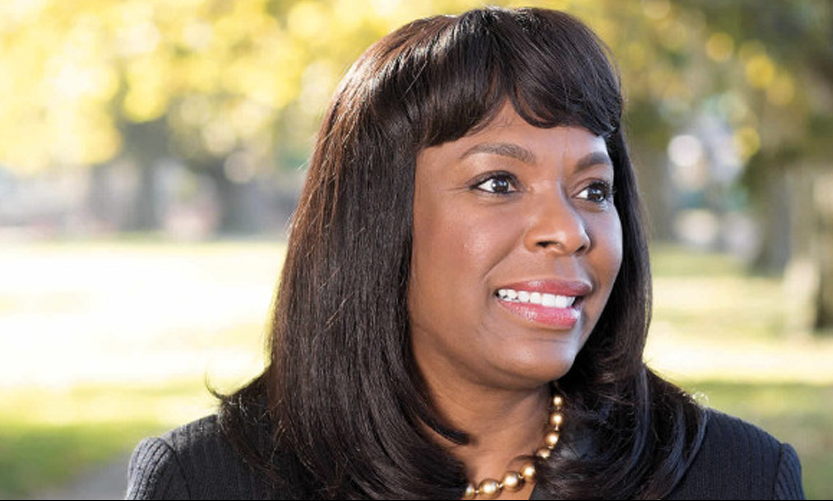By Brandon Moseley
Alabama Political Reporter
The Alabama Manufactured Housing Association issued a press release to thank US Representative Terri Sewell (D-Selma) for her introduction of legislation making obtaining financing for manufactured housing easier.
The Association wrote: “Thank you, Congresswoman Terri Sewell for your leadership and support!”
The Manufactured Housing Institute wrote in a statement: “Bipartisan Bill to Preserve Access to Manufactured Housing Introduced in Congress, Representatives Andy Barr (R-KY), Kyrsten Sinema (D-AZ), Bruce Poliquin (R-ME), Terri Sewell (D-AL), David Kustoff (R-TN), and Kathleen Rice (D-NY) have introduced H.R. 1699, the Preserving Access to Manufactured Housing Act, to alleviate the regulatory burdens that have impeded consumers’ ability to finance manufactured housing, which is a critical resource for low and moderate income families across the country.”
According to the industry group, “HR1699 addresses federal regulations implementing the Dodd-Frank Act that do not reflect the unique nature of the manufactured home financing and sales process. This legislation ensures manufactured housing remains available and affordable, without eroding important federal consumer protections established by the Dodd-Frank Act.”
The Chairman of the Manufactured Housing Institute (MHI), Tim Williams said, “We thank Representatives Barr, Sinema, Poliquin, Sewell, Kustoff, and Rice for working in a bipartisan manner to correct the federal regulations that are significantly impacting credit availability for the purchase of manufactured homes. I applaud them for coming together to protect consumers’ ability to access manufactured homeownership.”
Upon introduction, bill sponsor Andy Barr (R-KY) said, “The CFPB is “protecting” people right out of affordable manufactured homeownership. Congress should fight to give families opportunities – not take them away. This bill is for the millions who rely on manufactured housing but have been seriously harmed by crushing federal regulations. I am proud to have introduced legislation with my colleagues on both sides of the aisle to stop the government from taking the American dream of homeownership away. I look forward to Congress passing this important bill as soon as possible.”
According to the industry, HR1699 modifies the definition of “high-cost” loans so that manufactured home loans are not unfairly swept under this designation simply due to their small size. The provision of the Dodd-Frank Act that established parameters for which mortgage loans are classified as “high cost” included more flexible Annual Percentage Rate and points and fees provisions for small loans. This was in recognition of the simple mathematical fact that fixed costs on smaller loans translate into higher percentages of the total loan. Unfortunately, in practice, this flexibility has not been sufficient to address market realities. Thus, some manufactured housing lenders have exited the market and others are no longer offering smaller dollar amount (and most affordable) loans. The most recent Home Mortgage Disclosure Act data shows that consumers have been shut out of the market for quality, affordable housing because regulations have caused financing to be less available for manufactured homes. A simple, but necessary, adjustment to these thresholds is necessary to enable lenders to fully meet the demand for affordable financing for manufactured homes.
The bipartisan legislation also clarifies that manufactured home retailers and salespersons are not loan originators. The current CFPB definition of a loan originator is based on traditional mortgage market roles that do not equate with the business model of the manufactured housing industry, including lending and retail sales practices. Like real estate agents, manufactured housing retailers and salespeople are in the business of selling homes not originating loans, and currently run the risk of being considered mortgage loan originators. This bill amends the SAFE Act and the Truth in Lending Act to exclude manufactured housing retailers and sellers from the definition of a loan originator, so long as they are only receiving compensation for the sale of the home and not engaged in financing the loans.
Chairman Williams added, “Congress needs to understand how important access to credit is for working families, veterans, retirees, and those living in rural America. The negative impact these federal rules are having on their ability to become homeowners can be corrected with this bill. We hope the momentum created in the previous Congress carries over and this legislation is moved through the process quickly.”
During the 114th Congress, similar legislation (HR650) was passed by the House of Representatives in April 2015 by a bipartisan vote. The legislation was included in the Fiscal Year 2017 Financial Services Appropriations bill, which passed in the House in July 2016. It was also included in the Financial CHOICE Act, which passed the House Financial Services Committee in September 2016. In the Senate, the legislation (S. 682) was included in the Financial Regulatory Improvement package that the Senate Banking Committee passed in May 2015. The language was also included in the Financial Services Appropriations bill that passed the Senate Appropriations Committee in July 2015.
It never passed out of both Houses though so is being reintroduced in this Congress.
Congresswoman Terri Sewell represents Alabama’s Seventh Congressional District.

















































